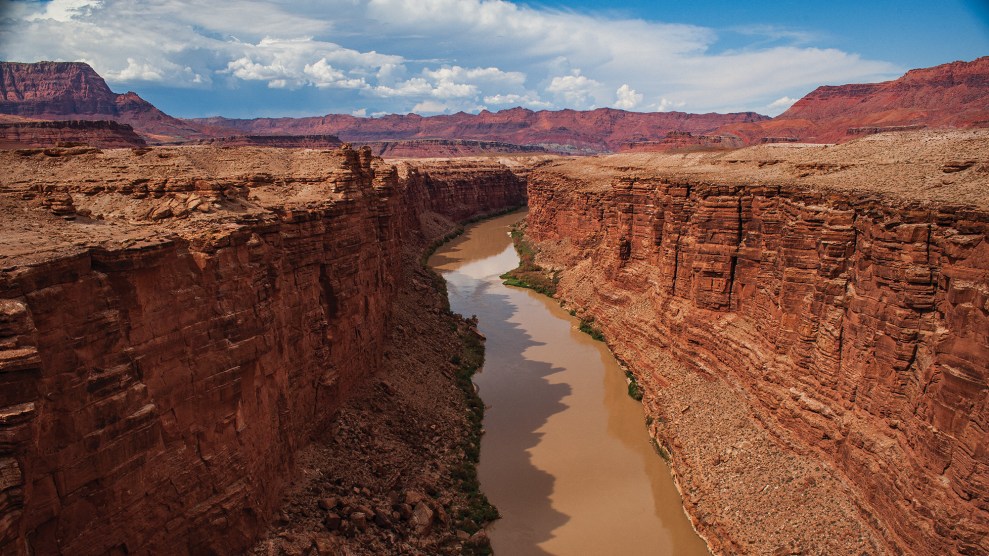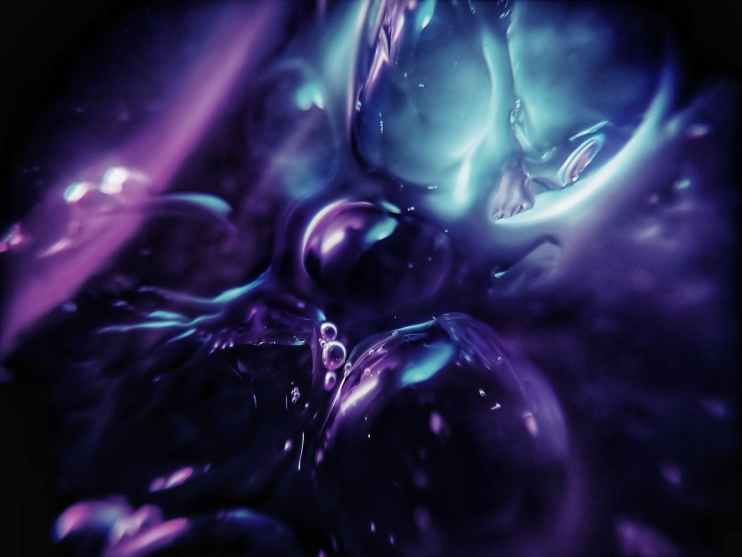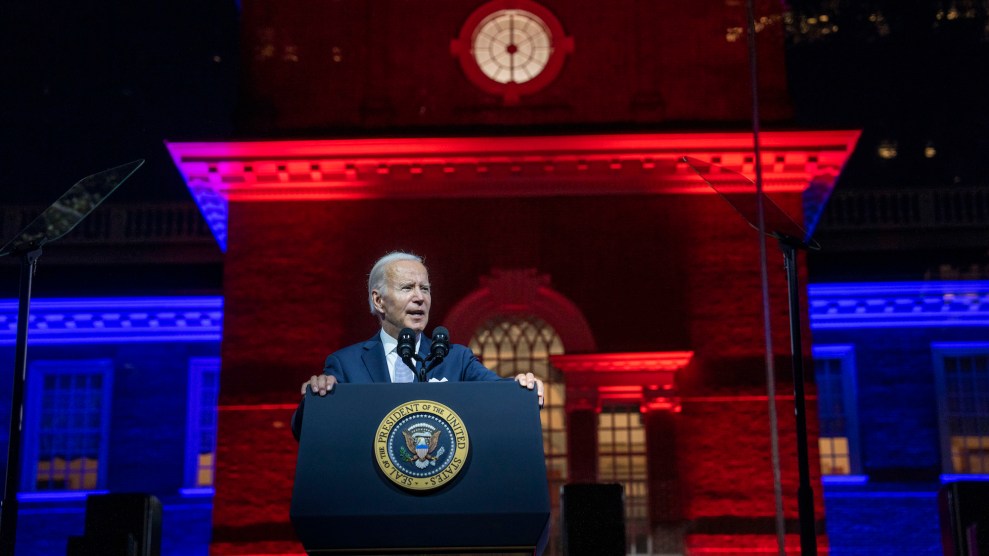
Two operatives for a now-defunct Maryland-based private security firm, which spied on environmental groups and other targets for corporate clients, are now in the crosshairs of a Louisiana lawyer representing plaintiffs exposed to dangerous toxins that leaked from a pipeline operated by chemical manufacturer Condea Vista. As Mother Jones revealed in April, from the mid-1990s to at least 2000 the security firm, Beckett Brown International, gathered intelligence for corporations and the PR firms they employed. Using methods that ranged from covert surveillance to dumpster diving to infiltrating activist groups, the firm, which was founded by former Secret Service agents, sought to obtain inside information that could be used as ammunition against activist campaigns. One of BBI’s clients was Condea Vista, a company whose chemical spill in Lake Charles, Louisiana, is considered among the largest in US history.
BBI’s activities were brought to light by John Dodd, a Maryland businessman who invested in the company before learning of its covert practices. Earlier this year, Dodd opened his collection of company documents to Mother Jones. Those documents, contained in cardboard boxes piled high in a storage facility, trace the course of various investigations against activist groups. Throughout the files are references to something called the “Lake Charles Project,” an effort by Condea Vista—then a subsidiary of the German petrochemical company RWE-DEA and now part of SASOL, the South African mining, chemical, and synfuels giant—to fend off protests and legal actions mounted in response to its pollution of the region. At the time, Condea was fighting civil suits by workers who had been sickened by leaks from the Lake Charles pipeline, as well as campaigns by local environmental activists. Condea and the crisis management firm it hired to mute the controversy, Nichols-Dezenhall, collectively paid BBI at least $200,000 for its services in Louisiana, according to billing records.
In addition to intelligence reports, client briefings, internal emails, and billing records laying out the Lake Charles Project, Mother Jones has also obtained video copies of depositions of two key players in the operation: Jay Bly and Tim Ward, the BBI operatives who oversaw intelligence gathering efforts on Condea opponents. The depositions, taken last fall by Lake Charles attorney Perry R. Sanders Jr., who is representing workers who say they were harmed during the cleanup of the spill (and who was not the source of the videos), will be entered in state court in Louisiana as part of an effort to force Condea Vista to come clean about what exactly it ordered the hired spooks to do.
Attorneys familiar with the litigation said that bringing Ward and Bly into the case—and potentially showing that Condea, through BBI, engaged in unsavory, if not illegal, surveillance practices—could influence a jury to set higher punitive damages.
The bulk of BBI’s covert operations in the Lake Charles area took place in the middle to late 1990s, during trial preparations for a host of lawsuits brought by workers who had been exposed to high levels of ethylene dichloride (EDC), a solvent used in the polyvinyl chloride (PVC) industry that is a probable carcinogen and can also cause permanent damage to organs and the central nervous system. Since the mid-1980s, Condea had routed EDC through a pipeline, owned by the oil company Conoco, that stretched from Conoco’s docks on the Calcasieu River in Westlake to Condea’s chemical plant in Lake Charles. The lawsuits alleged that the chemical company was aware of the high risk of leaks from the deteriorating, 40-year-old pipeline, yet continued to use it to transport, and at times even store, the dangerous chemical.
While some of the litigation has since been settled, Sanders and his co-counsel continue to litigate cases brought by plaintiffs—500 of them—who say they were harmed as a result of the spill. Seeking damages for his clients, Sanders has charged Conoco, its former parent company Dupont, and SASOL with, among other things, “reckless disregard for the public safety and environment.” An initial complaint filed in 2004 accuses Conoco specifically of “engaging in a corporate policy of destroying documents that would reveal the true extent of the spill and Conoco’s culpability.” Also named in suits filed by Sanders are R.W. Equipment Company and Anco Industries, companies hired to assist in the cleanup of the spill. (In a statement provided to Mother Jones, SASOL, which bought Condea Vista in 2001, said it had no comment on the litigation or the events surrounding BBI’s Lake Charles operation, since it purchased the chemical manufacturer years after the spill occurred. A lawyer representing Conoco in the Lake Charles litigation did not return a call for comment.)
Located in the historically Cajun bayou country of southwest Louisiana, upriver from the Gulf of Mexico, Lake Charles has been no stranger to chemical contamination. Like the notorious “Cancer Alley” in the eastern part of the state, the area is home to a high concentration of petrochemical manufacturers. But the spill from the Conoco-Condea pipeline was huge even by Louisiana standards. High levels of EDC were first discovered in the local estuary in 1993, and subsequently traced to the pipeline and to Conoco’s dock facility. The 1.6 million pounds recovered from the soil in the resulting cleanup effort were only a fraction of the total EDC that had leaked—by various estimates, between 19 million and 47 million pounds. But the companies downplayed the extent of the spill, and workers were dispatched to clean it up without being warned of the health hazards posed by EDC or being provided with adequate protective gear. By the late 1990s, some of those workers were suffering health effects ranging from burns to severe respiratory problems.
In the mid-’90s Tom Filo, an attorney with the Lake Charles firm of Cox, Cox, Filo, Camel & Wilson, first brought suit against Condea Vista on behalf of sickened workers. In 1997, he won an $8 million verdict. The jury in the case found Condea liable for “wanton and reckless disregard of public safety.” Not only did the spill sicken workers, Filo says, but it contaminated the Chicot Aquifer, which provides drinking water for southwestern Louisiana and southeastern Texas.
As he litigated the case against Condea, Filo says he suspected that his opponents might be using dirty tactics. “The offices were broken into a couple of times while the litigation against Vista was going on,” Filo told me. “In one incident I got a call from the security system. And I went down to the office at 3 a.m. There were 6 cops—sheriff’s deputies—sitting in the conference room. I said, ‘What’s going on?’ Well, they were ‘Just checking the office.’ The next morning the office manager discovered the front door had been broken through. A friend checked out the city agencies and found a record of an alarm being set off, then one minute later cancelled.” Filo says he later discovered that one of the police officers sitting in his conference room that night had a day job at Condea Vista. “Weird shit was going on back then,” he says.
Years later, Filo’s suspicions that he and his law firm were being spied on were confirmed. In 2006, the Louisiana lawyer received a call from John Dodd, alerting him that he might have been a “victim” of BBI. Filo, who is specifically referred to as a “target” in internal BBI documents, later flew up to Maryland to comb through Dodd’s archive. Among the documents Filo found were handwritten copies of his phone records. He also says he discovered confidential documents related to his litigation against Condea Vista, including a medical report by a doctor who had examined a client, a copy of an autopsy request, and internal memos between attorneys planning strategy in the case. He dismissed the possibility that these documents were fished out of the trash. “Copies of correspondence between lawyers never get put in the trash.” If private investigators were eavesdropping on his offices, or had gone so far as to steal documents from his firm, that would explain something that had long puzzled him. As he prepared his case against Condea Vista, he says, he was startled to find that his opposition “had info I was going to put in a brief before I wrote the brief.”
When Filo returned from Maryland, he showed some of Dodd’s BBI documents to Michael Tritico, a local environmental activist. Included in the records were photographs of Tritico’s mother’s house, which had apparently been staked out in an effort to monitor the activist’s whereabouts. “I always assumed the other side was watching,” Tritico told me.
The BBI documents show that the security firm had also surveilled the homes of other local activists, followed them, and attempted to trace the funding sources for their campaigns. One of the main focuses of BBI’s Lake Charles operation was a group called the Calcasieu League for Environmental Action Now, known as CLEAN, which in the 1990s was working in coordination with Greenpeace to hold local industry accountable for polluting the environment. In 1998, BBI set up an operation to gather information on CLEAN, hiring a “research consultant” named Mary Lou Sapone, who had experience infiltrating activist groups, to oversee the job. Sapone, in turn, hired an operative, an area school teacher, to pose as an activist in order to penetrate CLEAN. (Attempts to locate the operative for comment were unsuccessful. Sapone did not respond to a request for comment.)
After joining the environmental group, the mole ascended quickly through its ranks, soon taking part in high-level strategy meetings. All the while he was reporting back to Sapone, telling her what the activists were planning, identifying the scientists who were working with them, and providing information on the internal rivalries within the Lake Charles activist community. Sapone passed the intelligence on to BBI, which then used it to formulate briefings for its client, Condea Vista. In one such briefing, dated August 20, 1998 (PDF), the security firm boasted that its “operative is being nominated to the citizen action panels for local industries” and it asked which local industry Condea Vista would prefer the operative to focus on. Another BBI document (PDF) noted, “The operative has been trained to be inquiring, but not participatory. Operatives are not allowed to offer suggestions or ‘help’ the targets in any way. They are trained to seek documents, ID friends and foe legislators and regulators, follow money trails, ID informants, discover future targets.” Filo recalls that during the period in which the mole was apparently active, CLEAN held frequent nighttime meetings in his law firm’s offices.
Among BBI’s targets in Louisiana was a Greenpeace organizer named Beth Zilbert who was then working with CLEAN. Dodd’s files contain her phone records and numerous references to surveillance on Zilbert, with notes on her address and the license plates of vehicles that came and went from her house. Jay Bly, a former Secret Service agent who served as BBI’s “manager of special projects,” traveled to Lake Charles to conduct surveillance on Zilbert’s home and Filo’s office, reporting back to Tim Ward, a vice president at the firm and later its president. In some cases, Bly tailed vehicles as they left Zilbert’s home. According to Bly’s official BBI bio, his responsibilities at the firm ranged from handling “complex competitive intelligence and due diligence inquires” to the “management of misinformation campaigns and opposition research.” (After BBI, later known as S2i Security, disbanded in 2001 Ward set up his own security company, Chesapeake Strategies, where Bly now works. A lawyer representing Ward and Bly did not respond to a request for comment. Ward has declined requests for comment.)
In a telephone interview, Zilbert, now an attorney in Lake Charles, laughed about the surveillance reports, but talked of frequently feeling threatened during that period. “We knew someone was following us,” she says.
In depositions of Bly and Ward taken by Perry Sanders late last September and obtained by Mother Jones, both men, on the advice of their attorney and lawyers representing Conoco and SASOL, declined to provide details on their Louisiana operation. They did, however, confirm that they had worked on behalf of Condea Vista in Lake Charles, as well as in Washington, DC. Asked by Sanders whether all the information they had collected on Condea’s behalf had been gathered with the company’s authorization, Ward replied, “yes.” Questioned on whether, during the course of BBI’s work for Condea, the security firm “had the occasion to gather information from lawyers,” Ward’s attorney stopped him from answering, citing a Maryland statute that he said precluded Ward from breaching client confidentiality. As Sanders pursues his case, he intends to challenge the confidentiality claim in an effort to force Ward and Bly to shed more light on BBI’s activities.
Greenpeace, a BBI target in Washington as well as in Louisiana, has launched its own investigation and is currently mulling its legal options, which could include filing civil suits against the companies that employed BBI, as well as some of the firm’s one-time operatives. The group has sent a task force to comb through John Dodd’s archive, and is currently trying to figure out the depths to which its operations were penetrated. “Our assessment right now is that they used something beyond dumpster diving as a source,” says one Greenpeace official with knowledge of the investigation. Among the internal documents that ended up in BBI’s possession were donor lists and the social security numbers of employees—sensitive records, the Greenpeace official says, that would be unlikely to wind up in the trash. “If you were known to have thrown these away, you would have been fired,” the official says. He added that around Greenpeace’s Washington offices, the news that the organization was the target of an elaborate intelligence gathering operation was viewed as a badge of honor. “That they were coming at us that hard with these ops means we were effective.”






